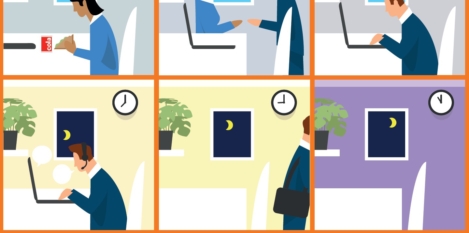To provide the best experiences, we use technologies like cookies to store and/or access device information. Consenting to these technologies will allow us to process data such as browsing behaviour or unique IDs on this site. Not consenting or withdrawing consent, may adversely affect certain features and functions.
The technical storage or access is strictly necessary for the legitimate purpose of enabling the use of a specific service explicitly requested by the subscriber or user, or for the sole purpose of carrying out the transmission of a communication over an electronic communications network.
The technical storage or access is necessary for the legitimate purpose of storing preferences that are not requested by the subscriber or user.
The technical storage or access that is used exclusively for statistical purposes.
The technical storage or access that is used exclusively for anonymous statistical purposes. Without a subpoena, voluntary compliance on the part of your Internet Service Provider, or additional records from a third party, information stored or retrieved for this purpose alone cannot usually be used to identify you.
The technical storage or access is required to create user profiles to send advertising, or to track the user on a website or across several websites for similar marketing purposes.
 Covid-19 has changed the profile of today’s jobseekers and as such, an organisation’s purpose is valued more than ever suggests new research from the recruitment agency Hays. Of the 13,500 surveyed, four in five (81 percent) professionals say working at an organisation that has a strong and positive purpose aligned to their motivations is important when considering a new role. Close to half (42 percent) say this has grown in importance since the outbreak of Covid-19. (more…)
Covid-19 has changed the profile of today’s jobseekers and as such, an organisation’s purpose is valued more than ever suggests new research from the recruitment agency Hays. Of the 13,500 surveyed, four in five (81 percent) professionals say working at an organisation that has a strong and positive purpose aligned to their motivations is important when considering a new role. Close to half (42 percent) say this has grown in importance since the outbreak of Covid-19. (more…)






 The number of self-employed people saying they have “poor” or “very poor” mental health has increased from 6 percent to 26 percent since the beginning of the pandemic (a 300 percent rise), claims new research by
The number of self-employed people saying they have “poor” or “very poor” mental health has increased from 6 percent to 26 percent since the beginning of the pandemic (a 300 percent rise), claims new research by 
 Highly talented workers join prestigious firms, claims new research by the
Highly talented workers join prestigious firms, claims new research by the 
 A new report from
A new report from 


 Research by employee benefits provider
Research by employee benefits provider 
 A new report from information technology company Wipro Limited claims that enterprises of the future will be built on a foundation of Artificial Intelligence (AI), Analytics, Machine Learning, Deep Learning and Automation. According to the
A new report from information technology company Wipro Limited claims that enterprises of the future will be built on a foundation of Artificial Intelligence (AI), Analytics, Machine Learning, Deep Learning and Automation. According to the 
 Seniority in the workplace could be directly correlated to how often you listen to music whilst you work, claims a poll of 1,000 UK office workers. The research, which was carried out by London office developer
Seniority in the workplace could be directly correlated to how often you listen to music whilst you work, claims a poll of 1,000 UK office workers. The research, which was carried out by London office developer 




 While city centres are taking time to recover, there’s better news elsewhere, suggests
While city centres are taking time to recover, there’s better news elsewhere, suggests 







September 8, 2020
Frontline and front of mind; communicating with employees away from HQ
by Julien Lesaicherre • Comment, Flexible working, Technology